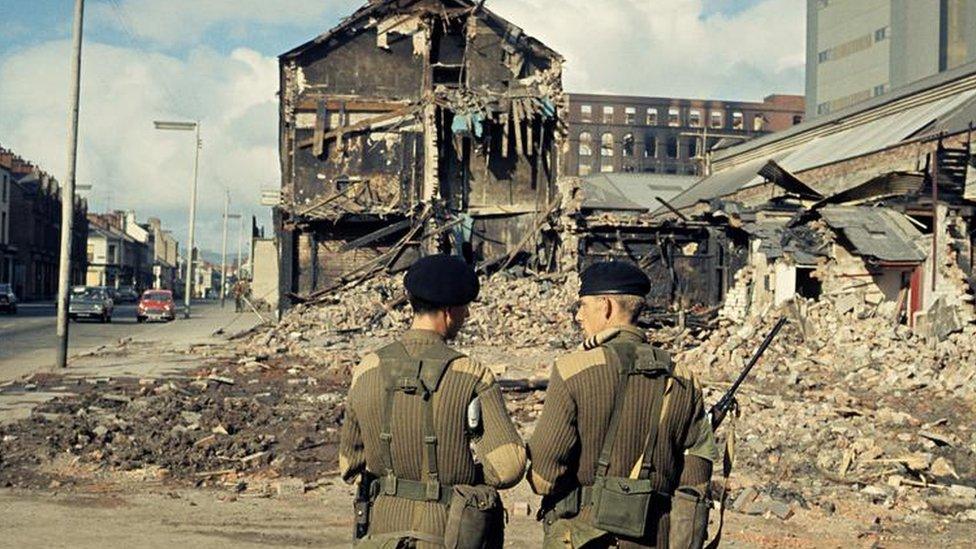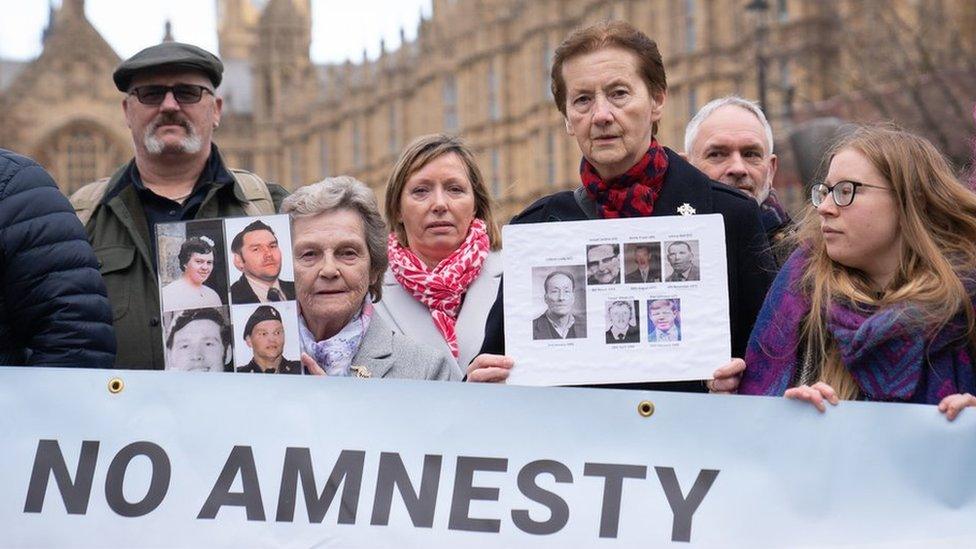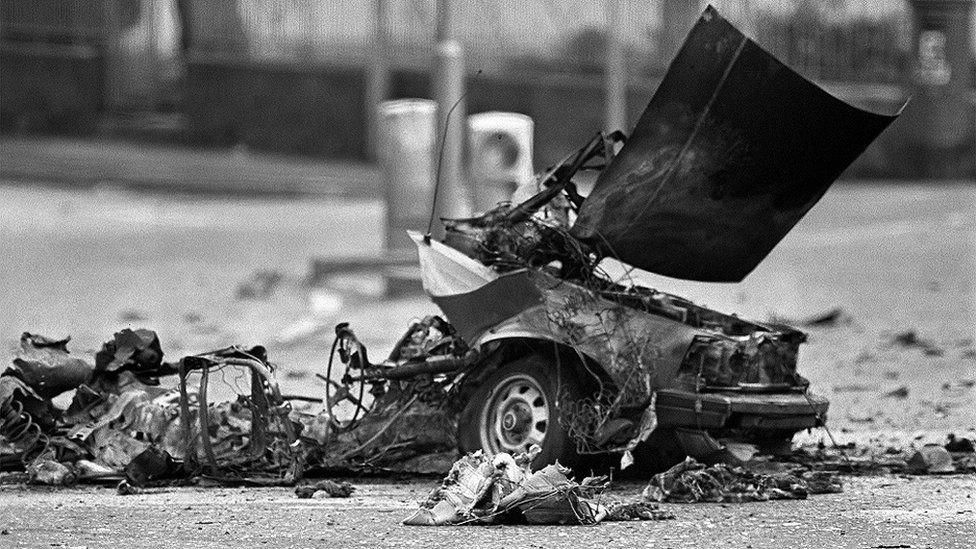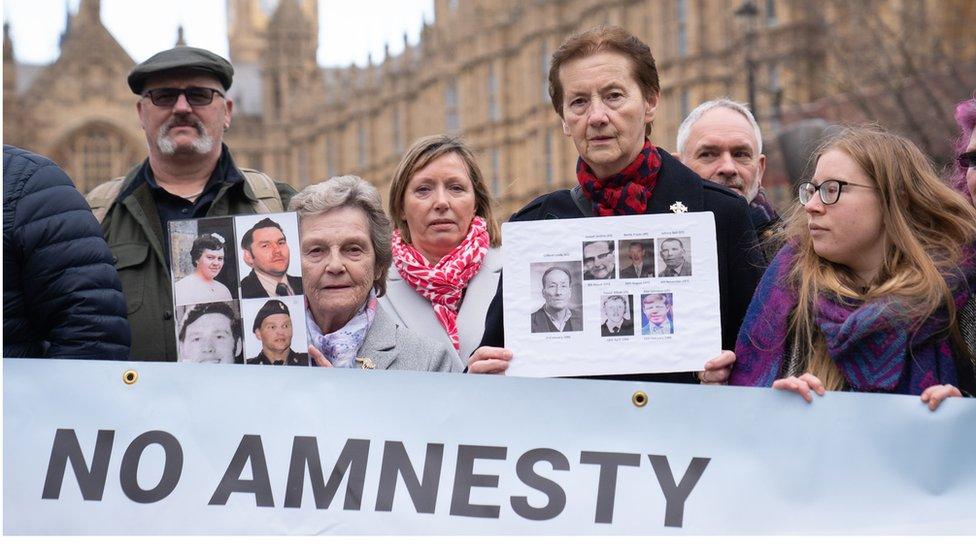Troubles legacy: Controversial bill passes final stage in Lords
- Published

The Troubles was a period of conflict which lasted for 30 years and cost the lives of more than 3,500 people
The government's controversial Northern Ireland Troubles legacy bill will now go for Royal Assent after it completed its last stage in Parliament.
The legislation offers a conditional amnesty to those accused of killings during 30 years of violence known as the Troubles.
It will also stop any new Troubles-era court cases and inquests being held.
Despite widespread opposition, the bill passed after a final debate in the House of Lords on Tuesday evening.
Opponents of the legislation, including victims groups and Stormont parties, argued the legislation will remove access to justice.
The bill is sponsored by the Northern Ireland Office (NIO).
Lord Caine, parliamentary under-secretary of state at the NIO, said it was a "robust" piece of legislation that had been improved with various amendments.
However, Lord Murphy, a former Northern Ireland secretary during Labour's time in government, said he still fundamentally disagreed with the bill's premise.
The Labour peer its effects should be "paused" until Stormont's power-sharing government is restored.
Northern Ireland has been without a functioning devolved government since February 2022 due to a Democratic Unionist Party (DUP) protest over post-Brexit trade rules.
What is the background of the legislation?

Victims groups held several protests against the Legacy Bill
The Northern Ireland Troubles (Legacy and Reconciliation) Bill was first announced in July 2021 by the then-prime minister, Boris Johnson.
Mr Johnson said the proposals would allow Northern Ireland to "draw a line under the Troubles".
In effect, the legislation would ban on any new prosecutions for Troubles-related crimes and prevent victims' families from seeking fresh inquests or taking legal challenges.
The Conservative government argued that the passage of time had made the prospect of future convictions very unlikely.
It was also facing pressure from its own backbenchers who were opposed to Army veterans being prosecuted over Troubles-era incidents.
However, all of Northern Ireland's main political parties and victims' groups oppose any attempt to ban prosecutions or introduce amnesties.
What is the purpose of the bill?
Instead of historical cases coming before the courts, the legislation will establish an Independent Commission for Reconciliation and Information Recovery (ICRIR)
The aim of this new organisation is to help families find out more about the circumstances of how their loved ones were killed or seriously injured.
The government argues that the new arrangements will "promote reconciliation" and free the Police Service of Northern Ireland from having to investigate Troubles-era crimes.
But the plans faced strong opposition as the ICRIR will have the power to grant self-confessed perpetrators immunity from prosecution, if they agree to provide a truthful account of their actions.
Related topics
- Published6 September 2023

- Published5 September 2023
